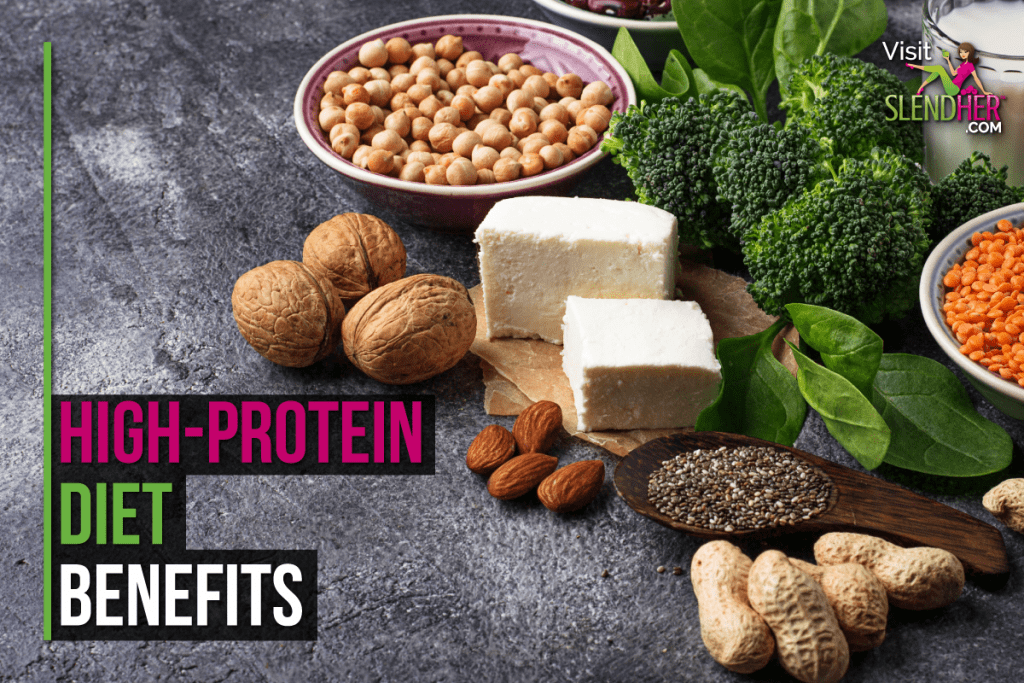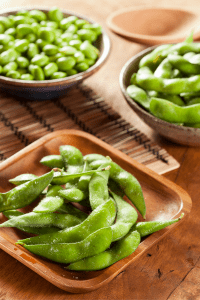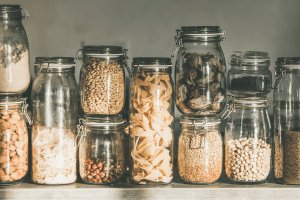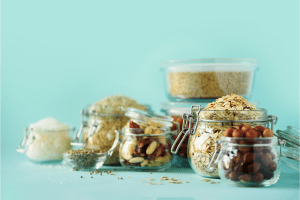
Will eating a high protein diet help you lose weight? Should you eat protein at every meal? Do you need to eat a specific amount of protein per day? These are some of the common questions that pop up when thinking about a high protein diet and whether you should be doing it. Let’s uncover the topic to set a few records straight on the protein dilemma.

What is a High Protein Diet?
A high protein diet is a focus on eating, as you guessed, more protein. Protein is an essential nutrient for the body as it helps to repair damaged cells and build new ones. Basically, protein helps to build and repair muscles, tissues and bones. It also helps with healthy skin, hair and nails. Therefore, protein is important to keep the body functioning at its best.
The emphasis of a high protein diet is to eat more protein and less carbohydrates and fats. It is reported to help with weight loss, improving energy and enhancing athletic performance.
If you want to follow a high protein diet, choose your protein and wholefoods wisely. Focus on the foods below.
Eat More:
- Beans
- Lentils
- Quinoa
- Nuts
- Seeds
- Tofu
- Fresh berries
- Vegetables
- Whole grains
Eat Less:
- Refined carbohydrates such as bread and pasta
- Saturated fats
- Fried foods
- Sugar
- Sweets

Is a High Protein Diet Bad for You?
Research suggests a mix of opinions on whether a high protein is good or bad for you. Check out this study.
Several health problems may result if a high-protein diet is followed for an extended time:
Some high-protein diets restrict carbohydrate intake so much that they can result in nutritional deficiencies or insufficient fiber, which can cause problems such as bad breath, headache and constipation.
Some high-protein diets include foods such as red meat and full-fat dairy products, which may increase your risk of heart disease.
A high-protein diet may worsen kidney function in people with kidney disease because your body may have trouble eliminating all the waste products of protein metabolism. – Mayo Clinic
It is important to note that to have a healthy balanced diet and a health functioning body, it is essential to eat all the macronutrients – protein, fats and carbohydrates.
Eating a high protein diet may have benefits for a short time, however, for long term health it is important to eat all three macronutrients.
What are the Pros and Cons of a High Protein Diet?
Like many diets, a high protein diet has its share of benefits and drawbacks.
Pros:
- Repairs muscle
- Builds muscle
- Builds strength
- Can improve the diet in general
- More filling
Cons:
- Can lead to nutrient deficiency
- May be harmful to kidneys
- May increase risk of heart disease
- Not satisfying
- Can lead to constipation
- Feel bloated
The Benefits of a High Protein Diet

Having protein rich meals and snacks can help you to feel full after eating which might help you to eat less throughout the day. You may find you snack less and choose healthier foods than previous foods you’d have chosen. For example, eating a handful of nuts is healthier than a bag of crisps or chocolate bar for a snack.
When you focus on adding protein rich foods to meals you will naturally focus less on other foods you used to add to the plate. For example: when you make a lentil curry served with quinoa there is less space for chips, bread or too much red meat such as steak.
A high protein diet may help with weight loss, but this type of diet plan cuts out important food such as higher glycemic fruit, potatoes and grains, therefore it does not provide a balanced healthy diet for long term sustainability.
Even though the benefit of losing weight might seem a huge bonus, there is so much more to a healthy body than weight loss. For long term health and longevity, focus on eating wholesome wholefoods to create balance and allow the body to thrive.
Check out these articles for healthy eating inspiration:
Sources of Protein for Vegetarians
Complex Carbs List – Foods to Include In Your Diet

Leave a Reply